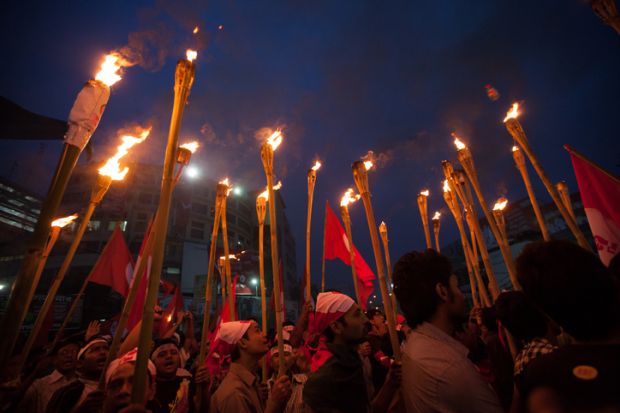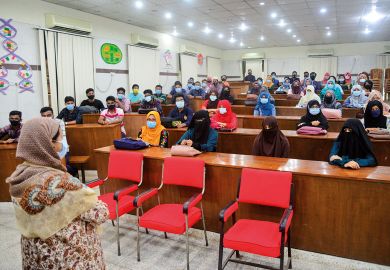Authorities in Bangladesh have told universities to shut indefinitely after anti-government protesters clashed on campuses, leaving at least six people dead.
In a televised broadcast on 17 July, prime minister Sheikh Hasina condemned the killings, blaming opportunistic “terrorists” for the violent escalation.
“How many precious lives were lost unnecessarily from the movement of young students?" she asked, vowing to punish wrongdoers.
Demonstrations broke out at universities across the country in July against a controversial quota system for public sector jobs that reserves 30 per cent of these for descendants of those who fought in the 1971 Independence War.
The quotas had been abolished six years ago but were set to be reinstated under a court order. Some young people, confronted with a faltering economy and high unemployment rates, are angry at the decision, believing it may make it even harder for them to find a secure job. Critics also say the reservation system benefits allies of the government.
The subsequent involvement of the Bangladesh Chhatra League, the student wing of the ruling Awami League party, saw things turn violent as the two sides clashed, reportedly fighting with sticks and iron rods. Police attempted to disperse the protesters, including by using teargas and rubber bullets, but many involved were injured and at least six died, including three students.
On 16 July, as the violence continued, Bangladesh’s University Grants Commission urged all public and private institutions to shut down indefinitely. The regulatory body also told universities to instruct their students to leave residence halls and provide them with alternative accommodation “for the safety of the students”.
Local press reported that Dhaka University, which has been at the centre of the protests, has now closed, with students ordered to vacate their dormitories. In a statement released on 15 July after an emergency meeting of the university’s senior leadership, the institution called upon all protesters “to behave responsibly in order to maintain the peaceful environment of university education”.
However, unrest continued on 17 July, including at Jahangirnagar University in Dhaka, where police have been attempting to dispel protesters.
Amnesty International condemned the attacks on protesters. In a statement on X, the organisation called on the Bangladesh government to “immediately guarantee the safety of all peaceful protestors and proper treatment of all those injured”.
The human rights organisation continued: “The description of the violence against protestors is consistent with the kind of violence Amnesty has documented in the past, whereby individuals in civilian clothing, brandishing weapons like hammers, sticks, and clubs interrupted protests and beat up protestors.”
Register to continue
Why register?
- Registration is free and only takes a moment
- Once registered, you can read 3 articles a month
- Sign up for our newsletter
Subscribe
Or subscribe for unlimited access to:
- Unlimited access to news, views, insights & reviews
- Digital editions
- Digital access to THE’s university and college rankings analysis
Already registered or a current subscriber?








